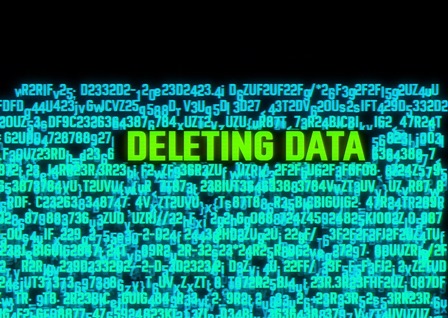Electronic Data Destruction
It is no longer a secret that electronic evidence is: (a) admissible as evidence in court cases; (b) routinely used by attorneys, law enforcement, regulators and other interested parties in court proceedings; and (c) that deleted information is recoverable.
All of those facts make using electronic evidence a very powerful tool in your arsenal or something to be feared, depending on what side of the equation you are on. The importance of electronic evidence and its use in court proceedings is causing an additional issue that needs to be addressed–that of data destruction (or “spoliation”). Electronic evidence is fragile–the simple click of a mouse button or press of the delete key can put electronic evidence in jeopardy of being overwritten. Electronic evidence itself is precarious in the fact that some evidence survives a tremendous amount of time and activity once it’s been deleted; but it is also true that data that was just deleted is no longer available immediately after the activity to delete it has taken place. Even more disconcerting is the fact that individuals and organizations interested in “hiding” activity that can be gleaned from electronic evidence, often resort to activities designed to remove or cover-up that evidence. The good news is that almost always those activities result in evidence that can be used to show that the spoliation or evidence destruction has occurred. Vestige has deep expertise in electronic data discovery services, and while we might not be able to recover the spoliated evidence in all cases, in those where evidence destruction has been taken, we almost always come up with the evidence to show that data destruction activities have indeed occurred.
Vestige’s Expertise surrounding Destruction of Electronic Evidence
Vestige has built an extensive array of expertise surrounding electronic data discovery services. Due to the frequency with which we run across some form of spoliation in matters (scores of cases each year), we have devoted resources into the research of the tools, methodologies and mechanisms employed by individuals to cover-up or destroy electronic evidence. To that end, Vestige’s electronic discovery services can assist by:
- Evaluating electronic media to determine if evidence destruction activity has likely occurred
- Identify and recover other copies of the data that may not have been subjected to the evidence destruction method employed
- Extract and analyze artifacts that show, with specificity, what data destruction activity has occurred AND when
- Testify via affidavits and other forms of testimony as to any evidence destruction activity undertaken as well as the likely ramifications of that evidence destruction
- Determine if spoliation occurred at a time when a duty to preserve was present





